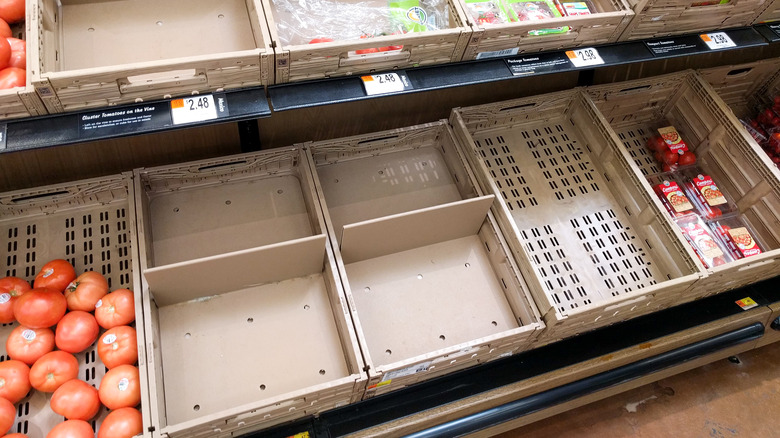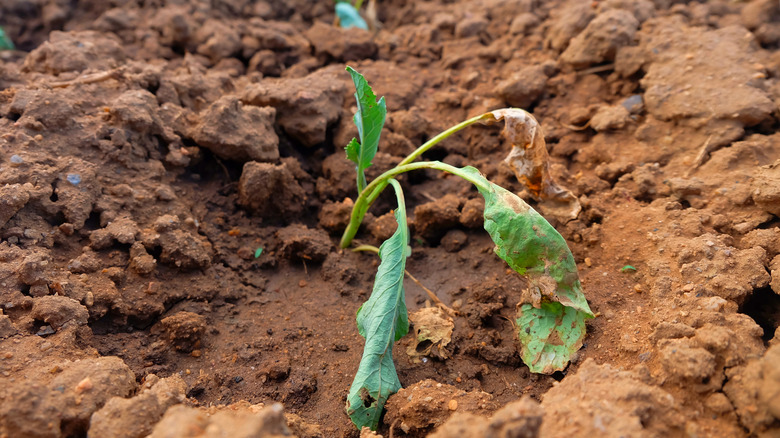Why The Produce Section At Your Grocery Store May Be A Bit Scarce
Grocery shopping used to be pretty fun, right? Over the past few months, though, this task has become downright stressful for many, with some of our favorite foods reaching unmanageable prices due to inflation. As reported by CNBC, Americans are worried about how the rising cost of food is affecting their grocery budgets, forcing them to change their shopping habits. For example, many are choosing private label brands more often, such as Kroger's Simple Truth brand, as well as investigating plant-based options in light of skyrocketing meat prices.
And, adding to the stress generated by the price of food due to the 40-year high inflation, is a lack of products actually sitting on supermarket shelves for consumers to buy. According to The Wall Street Journal, high temperatures in the western United States are decimating crops such as lettuce, berries, and melons, causing a drop in production and exposing many of the crops to disease and infestation.
Watermelons, cherries, and romaine lettuce are among casualties
It's likely that the produce section of your local supermarket has looked thin lately. According to The Wall Street Journal, heat waves across growing regions are damaging crops, leading to smaller amounts of shippable produce and leaving grocery stores with fewer items to stock.
California, one of the nation's leading agricultural producers, has experienced excessive heat that has taxed the state's power grid due to the use of air conditioners, according to NPR. In fact, the state's capital, Sacramento, tied a record in 2022, with its 41st day of temperatures reaching at least 100 degrees Fahrenheit. In the state's fields, lettuces such as romaine, iceberg, and leaf are wilting, becoming more susceptible to diseases and infestation by insects. One grower, Nature's Reward, is estimating a 15% reduction in lettuce yields as compared to last September, according to the WSJ.
In Washington, high temperatures earlier this season reduced the state's cherry harvest, while on the East Coast, watermelon season ended earlier than usual, with the fruit being replaced by honeydew melons in some cases. These reduced shipments are disruptive for supermarkets who are being forced to pay more for products in the face of a dwindling supply. "There are obviously a lot of concerns among the supplier network for the Western-grown fruits and vegetables," Mike Ferguson, senior vice president at Topco, a cooperative of more than 40 supermarket brands, told the outlet.

